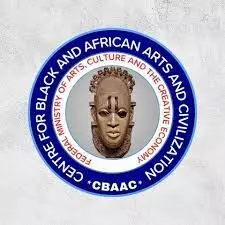- Home
- /
- Trending-News
- /
- Africans can achieve...
Africans can achieve full democracy without foreign aid, says Don

Dr. Ugo Aniga of the Department of Peace Studies and Conflict Resolution at Ajayi Crowther University, Oyo State, says Africans can only achieve full democracy when their leaders jettison foreign aid.
Aniga made the remark during the 2023 Centre for Black and African Arts and Civilization (CBAAC) annual public lecture on Tuesday in Ibadan.
According to Aniga, the future of Africa’s democracy depends on the operations of its leaders with their western counterparts.
The theme of the lecture is “Culture, Security, and the Future of Democracy in Sub-Saharan Africa”.
He said Africans must learn to confront their challenges and propose solutions to them independently, without western influence or aid.
“The only way to achieve full democracy is to run away from foreign aid; we must learn to confront our problems and offer African solutions to African problems.
“Africans’ greatest problem is neo-colonialism, and we must be conscious of the fact that democracy cannot triumph where there is neo-colonialism, injustice, and bad governance.
“African governments must also note that insecurity cannot be curbed when the masses are hungry,” he said.
Also speaking, Dr. Adetayo Ogunlewe, Secretary General, Platform for African Culture and Development (PACUD), Ibadan, described democracy as a state of mind and borrowed ideology instilled in Africans.
Ogunlewe said that to achieve full democracy, democratic studies must be inculcated in schools’ curricula to acculturate Africans to its dictates.
“We need to teach democratic studies in schools from the primary level through to the tertiary institutions, so that we all can understand what we want to achieve,” he said.
Dr. Temitope Bello of the Department of Political Science, Kola Daisi University, Ibadan, noted that to tackle the problem of insecurity in Africa, the African culture of selflessness, honesty, and taking responsibility must be displayed by every African.
“Conspiracy, cover-up, and extremism practised in the nation, which are not reported, are against the African culture of honesty.
“We must go back to the status quo as Africans and begin to bridge the gap between ethnic loyalty and national unity; we must desist from covering up crimes but be one another’s neighbours,” she said.
On his part, Dr. Sola Olorunyomi of the Institute of African Studies, University of Ibadan (UI), said that Africans must take cognizance of upholding indigenous languages to achieve continental development.
He said Africans must desist from playing dumb on the issue of promoting their languages, which could be considered a vital aspect of culture capable of enhancing knowledge in individuals.
“Being able to speak our local languages will help in accessing great education, from technical knowledge to scientific information to the lowest impulses,” he said.
Earlier,Oluwabunmi Amao, Director-General of CBAAC, noted that the democratic journey of the African continent had been quite a tortuous one, as democratic gains were fast being eroded on account of insecurity.
She said that this was a sad departure from the African Union’s aspiration for peace on the continent and the subsequent designation of the year 2020 as the year for “silencing the guns”.
She said that was supposed to be the deadline for achieving the end to violent conflicts, the prevention of genocide, gender-based violence, civil wars, and all other wars in the region.
She said Africans were increasingly losing faith in democracy and democratic governance as a means of guaranteeing improvement in the human condition on the continent.
According to her, this is evidently reflected in the general jubilation that has greeted the recent waves of coups in some countries in Africa, especially the West African region.
“To state that Africans’ democratic journey has been marred by conflict and insecurity is to say the least; it is important to interrogate the future of democracy within the African region,” she said.
Prof. Kayode Adebowale, Vice Chancellor, University of Ibadan (UI), represented by Dr. Seunfunmi Olutayo, Director, Institute of African Studies, UI, said,“Let us remember that Sub-Saharan Africa is not just a region of challenges; it is a region of boundless potential.
“By understanding the role of culture, addressing security concerns, and nurturing democracy, we can work towards a future where the people of Sub-Saharan Africa enjoy peace, prosperity, and the full realisation of their democratic aspirations."



